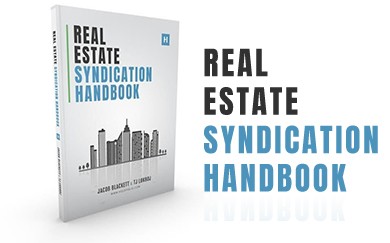Real estate investing is among the oldest strategies in the book to build generational wealth. As one of the most effective methods for building long-term wealth, many of the world’s most affluent and influential leaders attribute their financial success to strategic real estate investing.
Real estate investing diversifies your portfolio since it has a low correlation to the stock market, reducing the overall exposure to risk. Investors can earn residual income streams from rental yield allowing more space and time in their daily life for family and other priorities. They also commonly build equity in steadily appreciating assets providing better protection against inflation than numerous alternative investment strategies.
All real estate investment strategies carry varying degrees of risk and effort to manage. Before riding the one-way train to financial freedom and success, investors must consider their risk tolerance, current commitments, and financial situation to choose a game plan that will integrate comfortably with their investing prospects. This article will describe a few popular real estate investment strategies that can lead you to financial success.
Table of Contents
Questions To Ask Before You Begin Investing
The best part of real estate investing is the flexibility it affords. Regardless of whether you want to build a couple of streams of residual income or overhaul your career entirely and enter this lucrative investment class. There is something in real estate for everyone!
To determine the best strategy for you, here are a few helpful questions to ponder:
What Are Your Investing Goals?
Before you start investing, it’s critical to consider what you hope to achieve in the end. Many people begin real estate investing to retire early, build generational wealth for their family, earn residual income and quit the nine to five, or save for their children’s college education.
The lifestyle you wish to maintain during your investment term is also an important consideration. Certain real estate investments entail hefty active involvement, while others require you to do little more than invest your capital.
Whatever you choose to shoot for, ensure you have one overarching goal to begin with. Goals define your ideal outcomes and help chart the course to success by guiding strategic alignment throughout the investment. Dream big!
What Is Your Investment Timeline?
Once you have established a goal to strive towards in your investment, determine when you want to achieve it to keep you on track. Creating a timeline for accomplishing goals also includes benchmarks to reach along the way. For example, if you want to own a few rental properties freehold, at what point do you want to pay off your first mortgage? How many years before you leverage your equity to secure a second property? Do these timelines overlap, or are they sequential?
Setting a timeline for your goals is a great way to ensure you steadily work towards the endpoint and helps visualize milestones and deadlines. Furthermore, being accountable and taking actionable steps towards achieving your goals is motivating and rewarding which generates more inspiration to continue achieving.
What Is Your Risk Tolerance?
Risk tolerance describes the degree of fluctuation an investor is willing or able to withstand on their returns. All real estate investments carry an element of risk, and all investors will be able to absorb different magnitudes of loss for a potential gain, depending on their financial situation.
Investments with greater risk have the potential for more significant losses and better returns. On the other hand, a low-risk investment is considered safer but typically generates smaller returns. Therefore, any investor’s risk tolerance can be influenced by their investment term. In general, the longer the investment term, the higher the risk an investor may choose to take on since they have more time to buffer the ups and downs of investing. On the contrary, if your investment term is short (say less than five years), capital preservation might be a higher priority than excessive gains.
What one investor considers a minor inconvenience can equally be viewed as a devastating loss by another. The key is to consider your bottom line and stick to it throughout the investment term. Now, let’s take a look at some popular real estate investment strategies and how to start investing fast.
Real Estate Investing Strategies Mentioned
- Real Estate Crowdfunding Platforms
- Rental Properties
- Real Estate Investment Trusts (REITs)
- Real Estate Exchange Traded Funds (EFTs)
- Real Estate Mutual Funds
- House Flipping
Real Estate Crowdfunding Platforms

Real estate crowdfunding is an approach where individual investors pool together investment capital for the development, management, and operations of profitable multifamily and commercial real estate. The deals are handled by professional investment groups, offering investors access to lucrative returns from commercial real estate assets without having to pull the arrangement together themselves.
Crowdfunding is a relatively recent addition to the world of syndicated real estate investments, and deals get advertised through online platforms. Many real estate crowdfunding platforms require investors to be accredited and have a minimum knowledge of proper due diligence on properties, real estate markets, and opportunities.
Other platforms like Holdfolio allow you to invest with as little as $20k in the bank. Holdfolio has a vertically integrated construction company, property management company, and investment firm, meaning passive investors can access significant returns (currently averaging 19.76%) and capital appreciation in a low-risk investment. If you want to invest in real estate the easy way, call Holdfolio to get started today.
Pros of Crowdfunding Platforms
- Completely hands-off model
- Opportunities for high returns
- Dividends get distributed quarterly
- Investment portfolio diversification to decrease the risk
- Access to large tax deductions and shields
- Low correspondence to the stock market
- Some platforms offer an accessible entry
- Simply, fast, and easy to invest
Cons of Crowdfunding Platforms
- Investments are illiquid – better suited to a mid-long term investment
- Many platforms only partner with accredited investors
- Many platforms offer high minimums (upwards of $50k)
- Investors need to perform due diligence on new platforms
- You may have to pay management fees
Rental Property Investing
Rental property investors search for, purchase, and manage residential properties, making a profit from the rental income. There is a range of property types to select from, including single-family homes, duplexes, condominiums, and townhouses. With decent tenants and the right property in an ideal location, a landlord can cover their monthly mortgage payments, grow equity in their appreciating asset, and access additional cash flow after expenses are accounted for.
This real estate investment strategy requires a significant amount of capital upfront and ongoing expenses to maintain. Unless you outsource property management to a third-party company, as a landlord, you must solicit tenants, create lease agreements, perform maintenance duties, and eventually sell the property at the end of your investment term. Therefore, active rental property investment is appropriate for those with the time and money to handle the job.
Moreover, the risks involved with rentals can be off-putting to some. For a start, covering the expenses while a property is vacant is costly. Additionally, the legal liability landlords carry can be stressful and cumbersome to manage. While property appreciation commonly increases the market value of your investment, if the local market is in decline, it means your property value will decrease as well. By working with a good real estate agent you’re more likely to find a great rental suited to your goals.

Rental Properties Pros
- Once the property is rentable you can access semi-passive cash flow
- Landlords gain tax benefits, such as appreciation
- If your property is well maintained, you can usually expect property appreciation while the cost of owning the asset decreases
- When rental income covers your mortgage, you can gain equity using other people’s money
- Debt can be leveraged to acquire additional properties
- If you’re prepared to put in some hard work, you can rapidly appreciate the value of a distressed property
Rental Properties Cons
- Managing landlord responsibilities can be time and energy-consuming
- Rentals can produce unexpected maintenance and repair costs
- You are legally liable for any accidents that occur to guests, tenants, and contractors on your property
- Rentals require real estate knowledge, skills, and an active approach
- It’s difficult to diversify because rental property investment is so capital intensive
- Funds are illiquid
Real Estate Investment Trusts
Similar to real estate crowdfunding, REITs are trusts and corporations that own and manage profit-producing commercial real estate properties such as data centers, apartments, and office buildings. This is another approach to real estate investing without owning real estate assets. Company shares get traded on the stock exchange, and investors purchase these shares to passively earn monthly or quarterly dividends from rental income.
Law requires real estate investment trusts to distribute 90% of annual profits made from projects to shareholders. This regulation preserves its standing as an investment trust. Investment capital is highly liquid, meaning that no real estate agents or title transfers are required to cash out your investment if you need access to emergency funds.
You can choose from two types of REITs. Mortgage REITs finance property loans and generate profit from mortgage financing. Alternatively, equity REITs own buildings and earn income from rental yield. Real estate investment trusts are typically easy to access, however, they charge high fees for their services which may cut into your profit margin.
Real Estate Investment Trusts Pros
- High liquidity – you can buy and sell shares on the stock exchange easily
- Lower entry barriers than rental property investing
- Reduced risk compared to owning a real asset
- Less time and capital intensive than owning rentals or property flipping
- Easy to diversify your investment portfolio into real estate
Real Estate Investment Trust Cons
- Distributions are not guaranteed
- You have no control over the performance of your investment
- Private, non-traded REITs can be illiquid
- You have to pay fees which can reduce your profit
- Less access to leverage than traditional real estate investing
Real Estate Mutual Funds

Real estate mutual funds are pooled investments managed by professionals that essentially invest in REITs and companies that manage or operate commercial real estate assets. With a small amount of capital, investors can access a well-researched and diverse range of real assets in the same fund. Mutual funds also offer flexibility to switch portfolios with relative ease.
You purchase and sell mutual fund shares or units at the fund’s current net asset value (NAV). This type of investment has the potential to strategically protect your money from inflation, seeing as the value of real estate tends to rise in conjunction with inflation. Investing in real estate is a passive strategy, comes with a low minimum number of shares to buy, and is easy to achieve.
Mutual Funds Pros
- Less costly than investing in rentals or house flipping
- Very liquid investment
- Offers broad diversification in your investment portfolio
- Mutual funds are professionally managed and well researched
- No direct-ownership hassles tied to your assets
- Generally low fees
- Not capital intensive – low investment minimums
- Potentially hedges money against inflation
Mutual Funds Cons
- More expensive to invest than REITs
- Susceptible to stock market volatility
- No advantages to property appreciation
- Some funds have lock-in periods
House Flipping
House flipping, also known as real estate trading, has been recently popularized by television shows. The approach entails purchasing a distressed property below market value, then investing time and money into renovating it. This method can add almost instant and significant value to a property, which ideally gets resold at a large profit into the same market it was purchased from.
Flipping is the most active of the real estate investing strategies mentioned in this list. Investors are required to have a knowledge of the local real estate market, as well as the skills needed to bring the property up to shape. The scope of work can involve interior design, repairs, and landscaping. Investors must have good negotiation and sound decision-making skills as well. It’s possible to outsource the work, though hiring a third-party company can diminish your profits.
House flipping is typically a short-term investment and can yield excellent returns. With that said, it can be easy to lose significant amounts of money if you’re unable to resell fast or if the project requires more capital to complete than initially calculated. Real estate investors must be prepared for capital and time-intensive active method of real estate investing, which carries a significant amount of risk.
Live-In Flip

A live-in flip follows the same process as a regular property flip, except the investor inhabits the property while it is undergoing improvements. This approach can save you money on rent in your usual abode and keep your investment project easily accessible so that you can complete it faster.
If you choose to live in the property you are rehabbing, it is considered your primary residence, which shields you from capital gains tax incurred in investment property resale. The catch is that you must live in the property for a minimum of two years before selling it. Associated risk comes from the potential for a market decline during this period or difficulty selling at the end of the term.
House Flipping Pros
- Potential for large profits over a short timeframe
- A sense of achievement at the end of your investment term
- Property flipping is not correlated to the stock market
- High level of control and flexibility over the end result
House Flipping Cons
- Very high-risk investment
- Capital and time-intensive, particularly with unanticipated costs and issues
- Capital gains tax can significantly hinder profit prospects
- Hot markets can suddenly lose momentum
- Requires extensive real estate skills, knowledge, and competency
- Closing costs and real estate agent fees are pricey
- Financing is more expensive over the short term
- Location dependent
Final Thoughts
Real estate investments are by and large one of the most effective and productive vehicles to grow your wealth. It’s critical for investors to thoroughly examine their investment objectives, risk tolerance, and current commitments before weighing up their options.
Luckily, the magnitude of options available to any investor – whether you’re seasoned or embarking on a new real estate career – is variable enough to cater to a range of preferences, processes, and outcomes. Building a robust and well-thought-out strategy is significantly more likely to see you through to financial success.
A common issue for investors who want to diversify their portfolio and access the lucrative opportunities of investing in real estate assets is a lack of capital, time, or knowledge required to get started. Holdfolio offers a simple, passive real estate investing solution that entails little more than creating an account, selecting an investment, and depositing your capital. To begin building equity and receiving regular dividends from low-risk real estate investing the fast and easy way, get in touch with Holdfolio today.
 Back to Blog
Back to Blog




